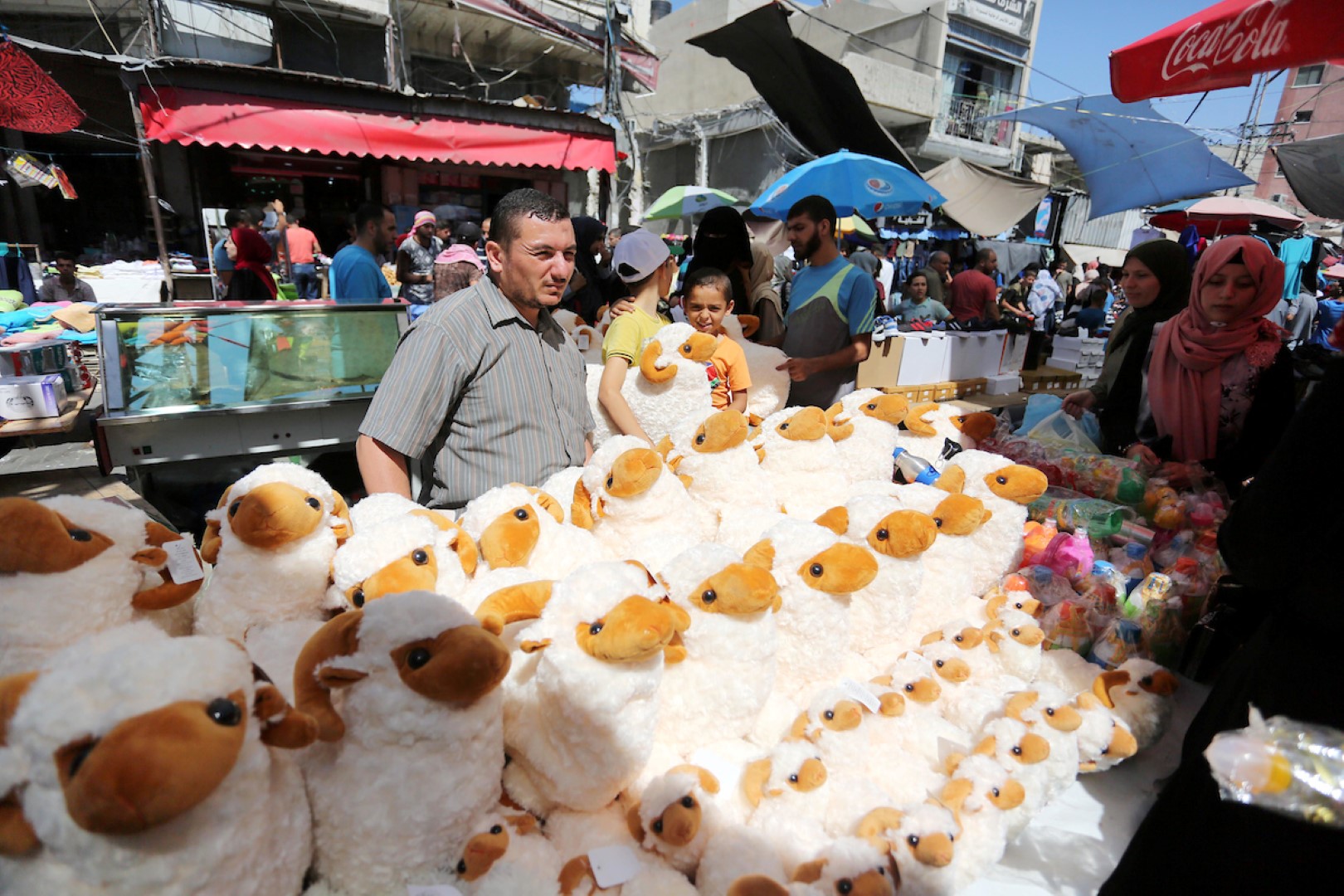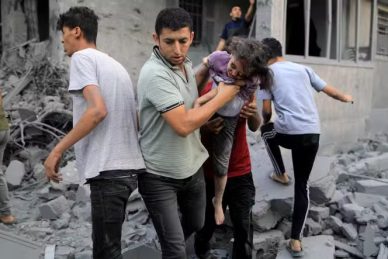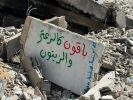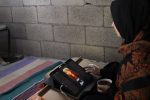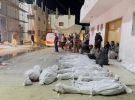Although no coronavirus cases have been detected inside the Gaza Strip and all reported cases are among citizens who recently returned to the enclave from abroad and remained in isolation Eid al-Adha (Feast of Sacrifice) will not be the same this year.
The Eid atmosphere has been marred by the anti-coronavirus precautions and the economic hardships endured by the people of the Gaza Strip in view of the 14-year-long blockade.
A state of high alert has been declared in the Gaza Strip by the Ministers of Health and Interior just a few days before Eid with a small number of shoppers and livestock buyers seen in the markets.
The economic crisis hitting the West Bank and neighboring countries because of the pandemic added to the already deteriorating economy of the Gaza Strip due to the siege have made matters worse.
Sluggish market
Mohammed Badran 36 the owner of a children’s clothes shop told the Palestinian Information Center’s reporter that the market has been largely affected by the blockade over the past 14 years but this year has witnessed an “unprecedented stagnation”.
“Look around. Is this how an Eid eve looks like?” Badran grumbled.
His neighbor Hamed Abed al-Raouf said that the markets are usually less active in Eid al-Adha than Eid al-Fitr.
However he added the markets this year are almost completely inactive due to several factors including the coronavirus crisis the delay in salary payments and the Qatari cash grant for poor families and the Gazans’ concern over what the future holds for them.
School preparations
Following a very long vacation which came as part of preventive measures against the coronavirus disease schools are expected to reopen one week after the Eid holiday in the Gaza Strip.
This could be another reason why most families in the Gaza Strip did not shop for Eid this year as they cannot afford to buy both school and Eid supplies at the same time.
Being aware of this Gazan merchant Saeed Dweima preferred to import large quantities of school bags and supplies to Eid clothes and toys.
Um Ramzi a mother of four told the Palestinian Information Center’s reporter that she has no intention to buy Eid clothes for her children this year and that school clothes and stationery are her top priority now.
Import decline
According to observers the import of Eid supplies during the period from Eid al-Fitr until Eid Al-Adha has decreased by more than 40% due to the financial crisis that affected Gaza traders due to the coronavirus pandemic.
Palestinian economist Maher al-Tabba’ told the Palestinian Information Center that the pandemic has added insult to injury explaining that the Gaza Strip has been already suffering from economic and humanitarian difficulties because of the crippling blockade.
Al-Tabba’ warned that the food insecurity rate among Gaza families exceeded 70% and that their purchasing power massively declined.
Despite the successive economic and financial calamities that the Gaza Strip has witnessed during the past decade the holiday seasons always remained an exception as markets open and import increases because families try by all means to please their children.
This year even this exception does not seem to be possible.

